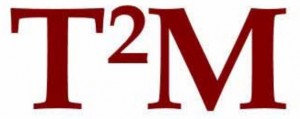The Future of Mobilities: Flows, Transport and Communication
Call for papers
Joint conference of the International Association for the History of Transport, Traffic and Mobility (T2M) and the Cosmobilities Network
Santa Maria C.V. (Caserta), Italy – September 14-17, 2015
Deadline for Submission (extended) : March 16th 2015

The International Association for the History of Transport, Traffic and Mobility (T²M) and the Cosmobilities Network invite proposals for panels and papers to be presented at their first joint conference. The conference will be hosted by the “Dipartimento di Lettere e Beni Culturali” of the Second University of Naples, Italy on 14-17 September, 2015.
Papers may address the conference theme, or any social, cultural, economic, technological, ecological and political perspectives on the history, present, and especially future of transport, traffic and mobility. The conference openly aims to bridge research approaches, welcoming proposals from different disciplines dealing with mobility studies (history, sociology, anthropology, geography, economy, planning studies, business history, architecture, design, communication, etc.) While the organizing association are rooted in history and sociology, we particularly encourage the submission of interdisciplinary panels.
The conference language is English (only).
Themes
The conference theme offers several lines of investigation:
• The future of mobilities in terms of both the future of mobilities studies as well as the
future of mobilities itself.
• The question of time-frames, e.g. how research concerning the past and the present
of mobility can be linked to the future.
• Mobility in the broader horizon of flows and emergent connections between transport, communication and movements.
• Trans-disciplinary research paths, and related theoretical and methodological issues.
Mobility studies have developed out of different disciplinary trajectories, with some studying mainly the past (e.g., transport history, travel writing), others concerned especially with the present (e.g., geography of mobility, mobile media), and still others looking towards the future (e.g., the new mobilities paradigm, transition studies). Yet these historical, contemporary, and future-oriented perspectives may all be diachronic in character, interested in processes and projects, rhythms and articulations, transitions and transformations, evolutions and revolutions. This conference proposes to investigate how we might bring these three streams together into an over-arching project of mobility studies.
Established in the 1950s and 1960s, future studies have been taken more seriously within economic fields, which have had the greatest influence on public policy. Although the action of forecasting often relies on the elaboration of historical and current trends, too often social scientists and humanities scholars have played a marginal role in futurology. Additionally, planning and policy in the mobilities field is still largely dominated by the “technological fix” approach, in which social sciences and humanities remain peripheral. Yet the emerging interdisciplinary mobilities studies suggest that learning lessons from the past and paying attention to the path dependency of developments provides a deeper understanding. In practice, a richer perspective on past and present mobilities could help inform visions of the future and enable more sustainable, equitable, and holistic future oriented solutions.
Trajectories
The conference aims, however, is not only to debate the future of mobilities per se and the risks and chances of the mobilization of modern worlds. It also considers – in a self-reflexive way –the future of mobility studies as well as the opportunities and limits of a wider trans- disciplinary cooperation among the different research “tribes”.
The 2015 conference theme also openly challenges the traditional division of study among transport, communication and flows (e.g., of water and sewage, of knowledge and money, of rubbish and debris etc.). The entangled relation among those elements calls on scholars to extend our investigations in multiple directions, while also being cognizant of the greater interdependency we expect they will have in the future. As we breach traditional disciplinary boundaries and tread on others’ territory, we raise new theoretical and methodological questions, presenting opportunities and challenges.
The questions linked to the conference theme include (but are not limited to):
• How do we envision and perceive the future of mobilities?
• What economic, technological, and policy perspectives should we adopt?
• What role will be played by environmental issues?
• How will gender and other social disparities shape mobility futures and inform
mobility studies in the future?
• What is the role of social science and humanities research scholarships and education in relation to policy makers, industries, governments and civil society?
• How relevant can an inquiry into retrospective futures be, e.g. an historical study of the future envisioned in the past, including fiction and science fictions?
• How can – or even should – comprehensive mobility studies shape future mobility landscapes and lives and in what directions?
• What methods would improve our study of the intertwined connections of flows, transport and communication?
Participants are encouraged, though not required, to organize panels on these or any other related themes. A panel consists of a chair and normally up to three speakers (see below for further information on papers and panels).
Venue
The Conference will be hosted by the Dipartimento di Lettere e Beni Culturali (Department of Arts and Cultural Heritage) of the Seconda Università di Napoli (the Second University of Naples).
The Seconda Università di Napoli is a comprehensive global research university that is ranked the top among the universities of South Italy. The Department promotes the development of competences allowing deeper knowledge of the complexity of world’s cultural heritage and all forms of interaction with disciplinary areas linked to similar research frameworks. It thus promotes scientific, technological and IT competences for the study, protection, conservation, restoration, and enhancement of the cultural heritage.
The Department hosts an Environmental Policies Watch that aims at encouraging the creation of a network among scholars (not only Italian) who concern themselves with environmental issues.
Santa Maria Capua Vetere is the town hosting the meeting, and it is located approximately 200 km from Rome International Airport, and about 40 km from Naples International Airport.
Field Trips will include the near The Royal Palace of Caserta, and they will be detailed soon.
Paper submission
The submission of a paper includes one-page resume regarding the presenter and one-page abstract regarding the paper itself. Individual presentations at the Conference are therefore to be limited to a fifteen-minute summary to allow for debate and discussion within the session. The full paper (usually 6,000-8,000 words) has to be submitted in a later stage of the process, and only after the selection outcomes.
Panel: A panel consists of a chair and normally up to three speakers; no discussant is required. We especially encourage transnational, comparative and interdisciplinary approaches, and welcome proposals exploring theoretical or methodological issues as well as those of a more empirical nature. We invite recent entrants to the profession and graduate students to submit proposals. A panel submission should include an abstract of 3 one-page, and one-page presentation regarding the papers included. A short biography of the presenters is also required.
Other: Any other innovative way of presenting research outcomes are welcome. In this case, the submitter(s) are invited to contact the local committee via federico.paolini@unina2.it
Deadlines
The deadline for the submission (max. 1 page each; Word or rich text format only) is 16th of March 2015. Send proposals to: submissions@t2m.org.
A notification of acceptance will be sent by April 15 2015. The full text of papers accepted must be submitted by 1 August 2015. The conference will be held on September 14-17, 2015
All participants are required to register.
Travel grants and Awards
T2M offers a number of travel grants for young scholars, who are heartily welcome to apply. T2M has also a long tradition of “best-paper” awards. Further information will be posted on www.t2m.org
Contacts
For enquiries about the program, please contact Sven Kesselring or Massimo Moraglio. For information about local arrangements, please contact Federico Paolini. Further details of the 2015 conference will be posted in due course by T2M and Cosmobilties.
Program Committee:
Valentina Fava (University of Helsinki, Finland)
Malene Freudendal-Pedersen (Roskilde University, Denmark)
Andrea Giuntini (Università di Modena e Reggio Emilia, Italy)
Kevin Hannam (Leeds Beckett University, UK)
Sven Kesselring (Aalborg University, Denmark)
Anna Lipphardt (Albert-Ludwigs-Universität, Freiburg, Germany)
Mimi Sheller (Drexel University, USA)
Local Organising Committee:
Massimo Moraglio (Technische Universität Berlin, Germany)
Federico Paolini (Second University of Naples, Italy)
Gerardo Marletto (Università di Sassari, Italy)



